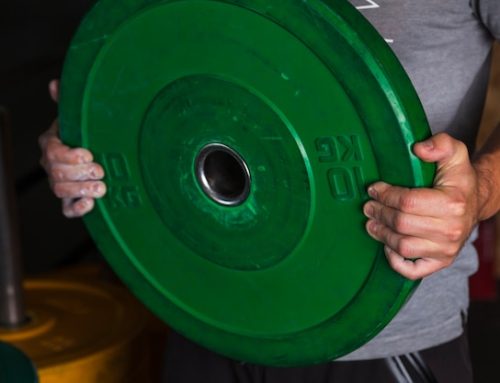The Myth of High-Rep Weightlifting and Testosterone
Weightlifting is often considered one of the most effective ways to boost testosterone levels in men. But, there’s a lot of debate about whether high-rep weightlifting – lifting light weights for a high number of reps – can actually increase testosterone levels. In this article, we’ll explore the science behind the myth and see if there’s any truth to it.
Understanding Testosterone and Weightlifting
Testosterone is an essential hormone for men who want to build muscle and strength. It’s responsible for muscle growth, bone density, and body hair growth. When men lift weights, they activate their testosterone receptors, which can lead to an increase in testosterone production. This increase can help men build muscle and burn fat more effectively.
High Reps vs. Low Reps
There are two common approaches to weightlifting: high reps and low reps. High-rep weightlifting involves lifting lighter weights for a higher number of repetitions per set, while low-rep weightlifting involves lifting heavier weights for a lower number of repetitions per set.
Many people believe that high-rep weightlifting is better for building muscle mass, while low-rep weightlifting is better for building strength. However, some studies have suggested that it’s the intensity of the workout – not the number of reps – that’s most important for testosterone production.
What the Experts Say
To find out whether high-rep weightlifting can increase testosterone levels, we turned to the experts. According to Dr. Brad Schoenfeld, a renowned fitness expert and researcher, there’s no evidence to suggest that high-rep weightlifting can boost testosterone levels any more than low-rep weightlifting.
In fact, Dr. Schoenfeld recommends that men focus on lifting heavier weights for a lower number of repetitions per set if their goal is to increase testosterone production. He suggests that men aim to lift weights that are 80% of their one-rep maximum for sets of less than 10 reps.
The Science Behind the Myth
So, why do some people believe that high-rep weightlifting can increase testosterone levels? One theory is that high-rep weightlifting can lead to an increase in lactic acid production, which can stimulate testosterone production.
However, there’s little evidence to support this theory. While it’s true that lactic acid production can stimulate the release of growth hormone, which can indirectly affect testosterone production, the effect is likely to be small.
The Benefits of High-Rep Weightlifting
While high-rep weightlifting may not be the best way to increase testosterone levels, it does have some benefits. For example, lifting lighter weights for a higher number of repetitions can help improve muscular endurance and cardiovascular fitness.
High-rep weightlifting can also be a good way to promote muscle growth in beginners who are just starting out with weightlifting. By focusing on form and technique, beginners can develop a solid foundation of strength and muscular endurance before moving on to heavier weights.
Summary
In conclusion, there’s little evidence to suggest that high-rep weightlifting can increase testosterone levels any more than low-rep weightlifting. While high-rep weightlifting can be a good way to improve endurance and cardiovascular fitness, it’s not the best approach for men who want to increase testosterone production.
If you’re looking to build muscle mass and strength, it’s best to focus on lifting heavier weights for a lower number of repetitions per set. By challenging yourself with heavier weights, you can activate your testosterone receptors and increase testosterone production.
But, regardless of whether you prefer low-rep or high-rep weightlifting, the most important thing is to find a workout routine that works for you. With consistency and dedication, you can achieve your fitness goals and enjoy the many benefits of weightlifting.






